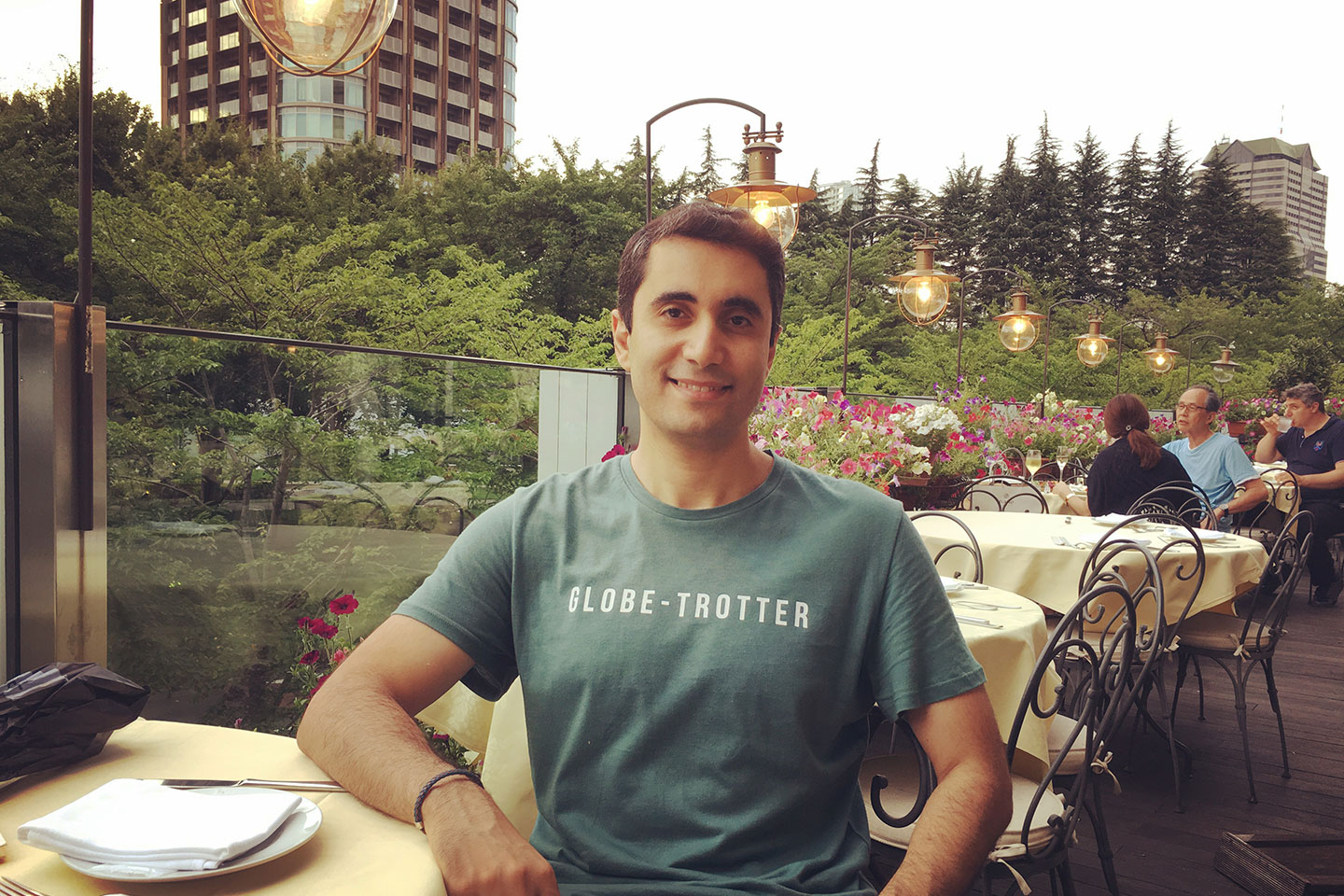Dr. Navid Asgari sat with us to recount his days at the NUS Business School’s PhD programme. After graduation in 2014, he joined the Strategy and Statistics Area of the Gabelli School of Business, Fordham University, New York City, as an assistant professor.
Q: How did you realise that studying for a PhD was the right choice for you?
I decided to pursue a PhD because I was curious to understand how strategy helps firms achieve success. While at the PhD programme, I realised that an academic career would afford me the freedom and the means of feeding my curiosity.
Q: What attracted you to apply for the PhD programme at NUS Business School?
Since admission to PhD programmes can be quite competitive, most applicants apply to multiple programmes across the world; but, I didn’t—NUS Business School was the only school I applied to. During a short trip to Singapore, I visited the university campus and met two faculty members, Professors Kulwant Singh, and Pasha Mahmood, who introduced the school and its research focus. When I realised that the school has everything that I needed for learning, I applied to the PhD programme. The university’s infrastructure is among the best in the world. Perhaps, the location of the school played a role too—Singapore is one of my favourite countries.
Q: How was your time in NUS Business School?
It was bittersweet. With a background in engineering, it took me a while to get accustomed to thinking and writing like a social scientist. I spent long hours at my cubicle, reading papers, learning new skills, collecting data and writing and editing manuscripts. Once I got the knack of formulating research questions and crafting papers, I started feeling better. Surviving this arduous process was not possible without the school’s caring faculty members’ mentorship and also my good friends’ support.
While I had a rough idea about my dissertation topic, it took me a long time to graduate. I had underestimated the volume of work that was required for the creation of my study sample and its empirical examination; I ended up spending more than two years on it. The dissertation’s proposal received the Strategy Research Foundation’s (SRF) grant from the Strategic Management Society; its final draft was acknowledged by the Technology and Innovation Management (TIM) Best Dissertation Finalist Award from the Academy of Management. The ensuing papers are now published at the Strategic Management Journal or being prepared for submission to strategy journals.
Q: What is it like doing a PhD, especially for those who feel intimidated just at the thought of it?
If you put your heart into it, you can do it. But, you should know why you want to take on this challenge. Don’t apply if you dislike your current job and think that being a professor is easy—it is not. Work for a PhD only if you love learning, reading and writing. While thinking about future gains, think about the opportunity costs too.
Q: It’s been about four years since you moved to New York, do you miss Singapore?
Yes, I do. I feel as if Singapore is my second home. I miss a lot of things. First and foremost, I miss the university. Whenever I am in Singapore, I take a stroll across NUS’ beautiful, lush green Kent Ridge campus—walking across the hilly campus and listening to the serenading Asian koels are relaxing to me. Every nook and cranny of the campus reminds me of something, happy or gloomy.
The local dishes, fruits, and delicacies, the pouring rains and the quaint neighbourhoods of Singapore are among other things that I miss.
Q: Now that you’re teaching, how is that different from you being a student?
There are two differences: first, now I am more confident that I know very little about my favourite field of study, strategy. Second, I am more enthusiastic about the field now than when I was a student. As a result, I am now more eager to learn and explore.



